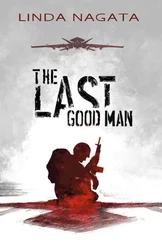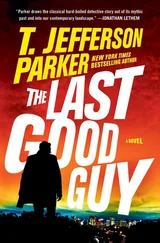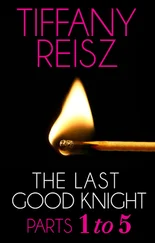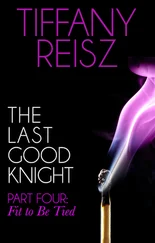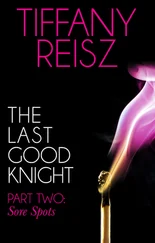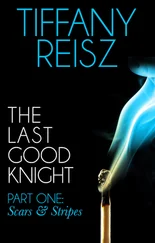“Joanna!” a man’s voice called out.
His name was Marc. He had been an exchange student and had befriended her mother in college. Later Ann would try to recall his features — silver hair, aquiline nose — but could not. It wasn’t that he was unattractive. His features were transformed as he looked at her mother, and that was only the half of it.
Before her eyes, this mother that she swore she knew everything about turned unrecognizable. The tightness, the tentativeness, the somberness dropped away. The woman who took Marc’s arm was relaxed. She glowed.
One of the restaurants was his, and he seated them at a table by the fountain. Waiters brought a bottle of champagne, and Joanna, who never drank in the daytime, toasted.
The day passed like an alternate reality, another life her mother could have lived instead. Marc had his car brought, and he drove them to his house in the country for lunch. The car was a convertible, and Ann scrambled into the tiny backseat while her mother tied a scarf over her hair. As they drove out of the city, the open fields and rolling hills eased the scary constriction Ann had been feeling. For the first time she acknowledged fear over her mother’s illness. Up front, Joanna looked like a ’50s movie star, oversize sunglasses and head flung back to let the sun warm her face. Even though Ann was an adult, she felt every child’s dismay at the evidence of her mother having had a life, and apparently a lover, before Ann existed.
The old stone farmhouse was at the end of a lane in a small village. When they got out of the car, people surrounded them: Marc’s three grown children, two daughters and a son, their spouses, and a handful of grandchildren. It was the birthday of one of the grandchildren, and neighbors had come to celebrate. Ann helped the oldest daughter carry food outside from the kitchen while Marc led Joanna around the property.
“He was so excited about her visit,” the daughter said. She had a dark beauty that Ann guessed was the mother’s. The elegant dress she wore was protected only by an apron.
“So was she,” Ann said, although of course her mother had told her nothing about it.
“He told me Joanna was his first love. Before he met our mother.”
“Is she here?”
“She passed away. It’s been hard on him, so this visit is good.”
Lunch was served under the trees at a long wooden table. The children sat on blankets scattered across the lawn. Marc sat with Joanna beside him at the head of the table. From where Ann sat, she would have sworn they were a couple, had always been together; they fit each other so naturally. She had never seen her mother like this, had never before seen her in love. Compared with this table, their life back home paled.
As each dish was passed, Marc put a spoonful on Joanna’s plate and then served himself. He carefully arranged a bit of cheese and a fig and fed it to her. Ann’s eyes stung. Her father would never have thought of doing such a thing.
When they returned to their hotel that night, Ann questioned her: “Why did you never mention him?”
“He was the first man I fell in love with. You don’t talk to your children about that if he’s not their father. How could I uproot my life and live in France? He went home and married. Later I met your father—”
“But you knew the difference.”
“Who I loved. Every person we love changes us.”
* * *
Wende was nowhere in sight, and Ann’s thigh stung. The waiter was eyeing her for occupying the table so long. To hell with it — she ordered more wine and a sandwich to go with it.
The thought of returning to her windowless office — reward for being promoted from junior to senior associate — filled her with despair. Hadn’t Napoleon bragged he could make grown men die for little bits of ribbon? She had spent years of her life to win those cubic feet of gloomy office space with the mushroomy-smelling ventilation system blowing down on her head. On her cluttered desk, Mrs. Peters’s hammered-silver monogrammed cocktail shaker in pink leather was waiting to be taken home to join a cabinet full of similarly expensive useless gifts, which the firm regularly doled out at holidays and birthdays and which clients gave in gratitude: designer nut trays, monogrammed silver ice tongs, crystal jam pots, expensive scented candles in their own Italian terra-cotta jars. The kind of uselessly lavish things that one immediately thought of regifting. Ann took a big sip of wine.
Richard was moping at being left behind back at the resort. Was she taking out her anger on him? They could not keep going on this way. At the very least, they would burn through all of their money. Eventually they would have to either go forward or go back; one couldn’t tread water forever.
* * *
Richard was sweating.
The day was hotter than previous ones — the air heavy with rain, although the sky was immaculately cloudless. The women had deserted. Ann had been distracted and distant when she left that morning. From long years of marriage he recognized that dormant-volcano quality she had when about to make a declaration, and he dreaded the inevitable explosion. He needed to talk, to hold hands, to cuddle, and yet on this empty island the only time they spent together was at night in bed, and so far every night Ann had turned her granite back to him and slept like the dead. What was she so tired from anyway?
Loren, his rival, scowled when he invited him to a game of chess. Alone, Richard drank a morning beer and sat down to read, but the slapping of the waves against shore, the boom of the reef beyond, the floodlight glare of the sun on the white sand beach made it impossible to concentrate.
Above a clump of palms, tiny puffs of smoke appeared. Gratefully, Richard threw down his book to go investigate, thinking maybe Titi was preparing one of those Polynesian earth ovens he always wondered about. As he rounded the shoreline, the sight in front of him stopped him in his tracks.
Dex sat cross-legged in front of a large bonfire. In the blazing daylight, the fire appeared fake, like pretend flames in a stage play, harmless and funny. Tears tracked down Dex’s pocked, sharp cheeks as he swayed back and forth, chanting something. Listening more closely, Richard decided he was singing — maybe the new song from the night before? — although he couldn’t be sure. His first instinct was to retreat, but his overriding second one, honed by years in the Scouts up to the level of Eagle Scout, was to help. He was fairly fluent in crazy due to Javi and knew the best offense often was none at all.
He strolled at a leisurely pace up to the fire and flopped down on the sand. It was too disconcerting to look at Dex’s face, twisted in agony — bad drug trip? — so instead Richard stared at the flames, their orange tongues leeched of threat under the pounding sun.
“Hot mother today, huh?”
Dex wasn’t swaying after all; he was trembling. He wadded another piece of paper and fed it into the flames as if he were performing an ancient sacrifice.
“What you got there?” Richard prodded.
“Illusion,” Dex said.
* * *
All his long career as a musician he had been hoarding these inspirations, trapping them down on paper or recording them on tape, scrawling words on his own arms, on receipts, cocktail napkins, paper towels in grubby nightclub bathrooms. Once he even used a Sharpie on a groupie’s back, a single phrase down her spine, and took her to his hotel to copy it down in his spiral notebook because there was no agony like losing these whiffs of magic (he’d gladly write them in his own blood if he had to). He lived under the constant worry that the source that gave so freely might turn capricious. It was like being the worst kind of junkie — the kind no one wanted to cure. Maybe — he was going slow here — just maybe he would decide to never write another song again. It was conceivable. Could he be happy just being a regular guy? Maybe he would stay on this island, away from the temptations of civilization. Was he strong enough to give it all up? Nah, he could never give it up. He loved the music too much. Or did he?
Читать дальше

